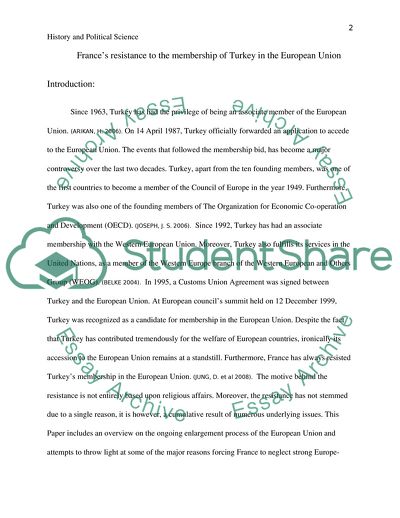Cite this document
(Frances Resistance to the Membership of Turkey in the EU Case Study Example | Topics and Well Written Essays - 4750 words, n.d.)
Frances Resistance to the Membership of Turkey in the EU Case Study Example | Topics and Well Written Essays - 4750 words. https://studentshare.org/politics/1763947-is-frances-resistance-to-turkeys-eu-membership-motived-by-religious-affairs-if-so-is-it-justified
Frances Resistance to the Membership of Turkey in the EU Case Study Example | Topics and Well Written Essays - 4750 words. https://studentshare.org/politics/1763947-is-frances-resistance-to-turkeys-eu-membership-motived-by-religious-affairs-if-so-is-it-justified
(Frances Resistance to the Membership of Turkey in the EU Case Study Example | Topics and Well Written Essays - 4750 Words)
Frances Resistance to the Membership of Turkey in the EU Case Study Example | Topics and Well Written Essays - 4750 Words. https://studentshare.org/politics/1763947-is-frances-resistance-to-turkeys-eu-membership-motived-by-religious-affairs-if-so-is-it-justified.
Frances Resistance to the Membership of Turkey in the EU Case Study Example | Topics and Well Written Essays - 4750 Words. https://studentshare.org/politics/1763947-is-frances-resistance-to-turkeys-eu-membership-motived-by-religious-affairs-if-so-is-it-justified.
“Frances Resistance to the Membership of Turkey in the EU Case Study Example | Topics and Well Written Essays - 4750 Words”. https://studentshare.org/politics/1763947-is-frances-resistance-to-turkeys-eu-membership-motived-by-religious-affairs-if-so-is-it-justified.


